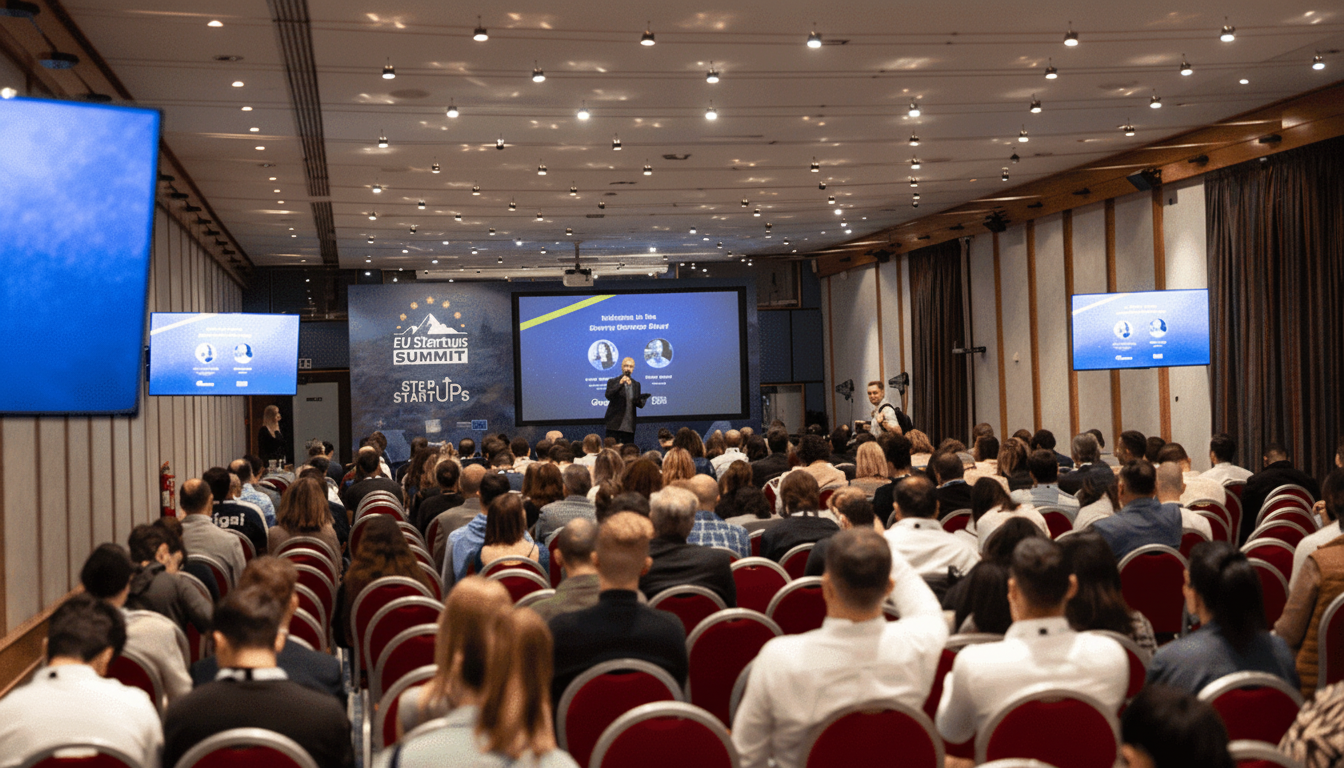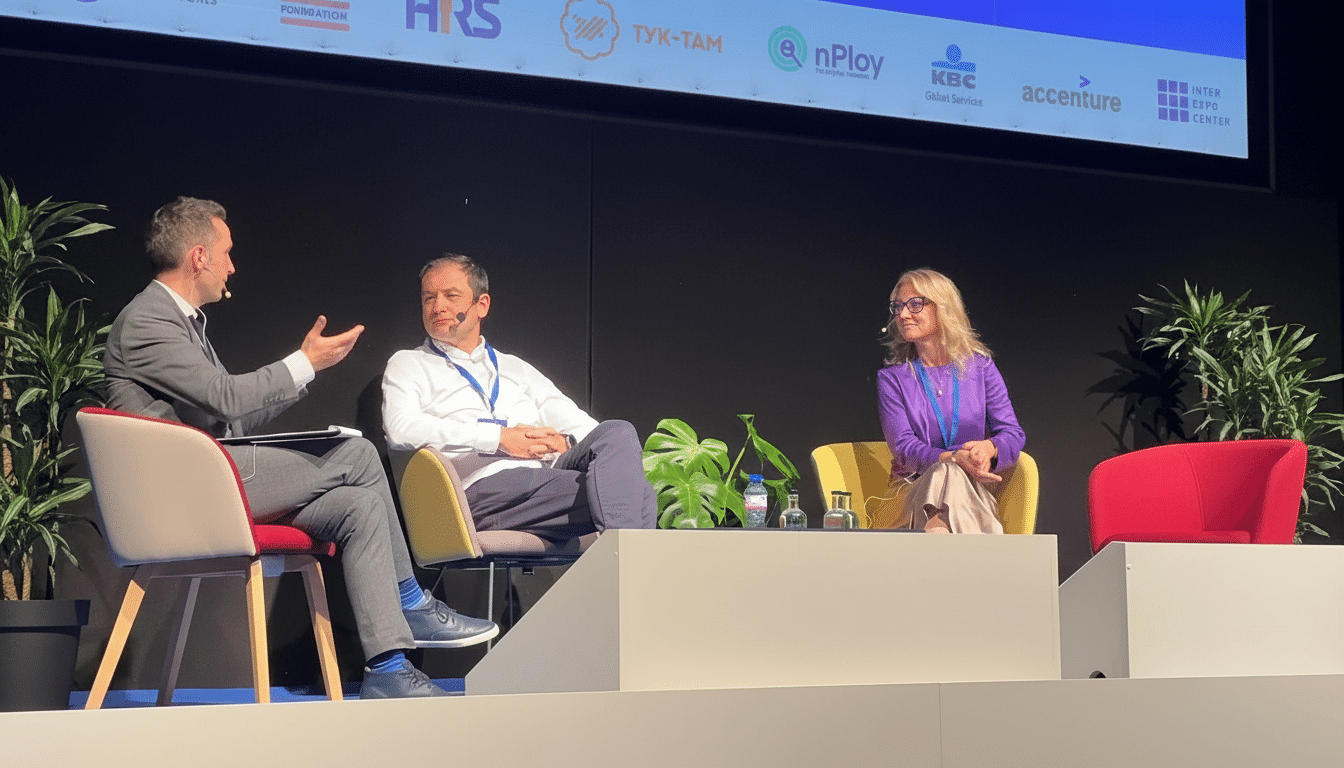Europe’s startup ecosystem is shaking off old stereotypes and growing to rival the United States. The vibe at the Slush conference in Helsinki was symptomatic of a market that no longer thinks of itself as a feeder to Silicon Valley, but rather a producer of global category leaders in AI, climate, fintech and enterprise software.
Backing that optimism is a bulwark built on record levels of venture dry powder, a deeper bench of repeat founders, and the renewed attention from U.S. investors. Even while some companies reined in London outposts, others expanded into new offices and cross-border participation in European rounds is strong, according to Atomico’s State of European Tech and research by PitchBook.

Momentum Looks Different Now. Here’s Why.
This is not simply a rebound story. Europe has structural advantages in areas where regulation, research depth and engineering excellence make a difference. That’s feeding commercially minded labs in A.I., robotics, biotech and even clean energy that have pedigrees stretching back decades to public R&D investment and world-class universities.
Crucially, the flywheel is spinning. Spotify, Adyen, UiPath, Klarna and Celonis alums are paying it forward to the next wave as founders, angels and operators. New champions like Northvolt, DeepL and France’s Mistral AI show that European-born companies can scale fast, command premium valuations and sell globally from day one.
Capital Is Coming Back and Growing Up Across Europe
According to PitchBook data, European VC dry powder is at or around record levels, a cushion that is fueling bigger growth rounds and speedier follow-on financing. Sovereign-backed LPs such as Bpifrance, KfW Capital, and British Patient Capital have stabilised the market and catalysed private co-investment through the cycle.
Europe is the source of about 30% of worldwide climate-tech funding, Dealroom reports, and policy frameworks and industrial base are strong differentiators for the region in this category. Funds like those for frontier AI and climate, plus a reliable venture debt market now propped up by European banks and EIB-backed lenders, are cutting the need to move that’s necessary for startups just to be able to get funded in the U.S.
Talent Is Staying Put as European Startups Scale
For years, founders decamped to San Francisco in pursuit of scale. That reflex is fading. Both remote-first hiring and experienced operators willing to relocate have made it possible for us to stay headquartered in Stockholm, Paris, Tallinn, or Berlin while building global teams. At Slush, several C.E.O.s mentioned quicker execution and lower burn rates as a result of remaining in Europe and importing senior Silicon Valley talent when necessary.

Reforms are helping. France’s BSPCE enhancements, Germany’s “Future Financing Act,” and Spain’s “Startup Law” have updated stock options and visas to facilitate winning over and holding onto senior hires. That’s led to more repeat founders and operators cycling through the ecosystem with the talent to scale up to hundreds of millions in ARR before they even consider possible exits.
Policy Tailwinds Take Shape for Europe’s Innovators
We are moving from rhetoric to policy design. The EU’s own innovation agenda—underpinned by the European Innovation Council and its newly established EIC Fund—has intensified blended finance behind deep tech for Europe. Not to mention initiatives such as the Capital Markets Union and listing reforms, which strive to democratise public markets, with growth platforms on Euronext and other exchanges delivering on-ramps to liquidity.
Cross-border company rules and digital-by-default registration are also cutting the friction of doing business across the bloc. The clarity from the EU’s AI Act is debated, but also gives founders guardrails on compliance early — handy for companies that want to know what the rules are before signing big contracts.
What Could Go Wrong for Europe’s Startup Momentum
A fragmented market, a late-stage equity gap versus the U.S. and corporates that can be slow to adopt startup tech are all challenges Europe still has to solve for. The public stock market’s depth is still lagging, and some of the biggest listings continue to defect to U.S. exchanges.
But the direction of travel is hard to ignore. U.S. participation in European rounds is up over the past five years, according to Atomico, and local growth funds have grown in scale. With hundreds of unicorns minted and a deeper layer of $1B–$10B companies, the pipeline for more durable public listings is greasing.
The European startup scene is no longer asking for a seat at the table. It is pulling up a chair to the table, scribbling the agenda in AI and in climate — and demonstrating that it knows how to create global champions on European soil. The spotlight, at last, seems deserved.

